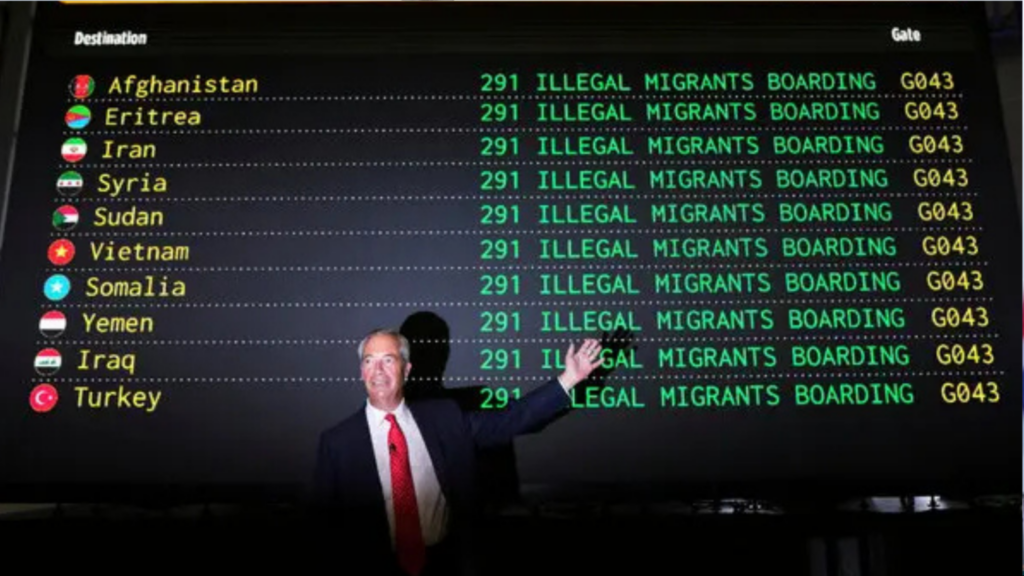The Rise of Asia: Quo Vadis Transatlantic Relations?
This article is part one of a three-part series on the future of transatlantic relations and the positioning of Europe in a changing world order due to the economic rise of Asia. In part one the conditions of the changing world order are outlined.
The year 2020 will certainly remain a special memory for many. Apart from the turbulence that fills the news broadcasts, this year will be marked by a milestone that many are unaware of: for the first time, half of the world’s economic output will be generated by the Asian economies (Hilpert 2020). This seems to be the starting signal for the “Asian century” already predicted towards the end of the last century. Even if it is not yet certain that our future will be “Asian”, the trend of recent decades speaks for itself.
The diagram shows the economic rise of the Asian continent from the third largest contributor to world gross domestic product in 1990 to the largest in 2014. As already mentioned, this development is currently cumulated with an Asian contribution to world GDP of about 50 percent.
These economic shifts inevitably lead to shifts of power away from the European-American sphere, to Asia in general and to China in particular (Kreft 2010). This change in the world order raises the question of how transatlantic relations will adjust in this context. Particularly since, apart from the rise of Asia, the decline of the USA seems to be taking place in an apparently complimentary manner. Therefore, it seems worthwhile to consider the discursive space with regard to the future handling of transatlantic relations by European states under the conditions of a changing world order.
The Fall of Empires – a Matter of Relations
The label of the “sick man” has a long tradition. With this label, states are described which are (apparently) in decline. Some observers describe the USA as the “sick man of the 21st century”. (Klion 2019). However, the (perceived) decline of the USA must be placed in perspective.
After the collapse of the USSR, a “unipolar moment” in world politics can be identified. Between 1991 and 2003 the USA was the only world superpower. This state can be clearly described as a (one-time) anomaly (Bierling 2015, 35). From 2003 on, this unipolar moment ended. There were and are several reasons for this. On one hand, there were (homemade) problems resulting from the foreign policy of the United States and the split in American society. On the other hand, the change in the international environment has also contributed. Internationally, the rapid (economic) rise of (Asian) emerging economies, such as the People’s Republic of China, has caused the USA’s power advantage to dwindle. (Bierling 2015, 32).
The (or one) basis for the United States’ enormous power advantage was its unchallenged position as the world’s largest economy. However, it can be seen that the US lead (over the PRC) began to shrink in the mid-2000s. Young emerging economies, such as China, are becoming more politically confident as their economic strength increases. The center of the global economy could shift to Asia in the long term (Fukuyama 2020, 31). The unipolar moment of world politics and order has come to an end. It can be postulated that the USA sees the rise of China as a threat. Therefore, it is reasonable to assume that the hard course against the PRC could be set even after the victory of Joe Biden in the recent elections (Fukuyama 2020, 33).
A new Bi- or Multipolar World: Europe at a Crossroads
The rise of China has so far been primarily an economic rise. Thus, China can already be called an economic powerhouse. It is also true that the People’s Republic of China will still need some time before it can equal the USA in its ability to shape the international system. But the People’s Republic undoubtedly has the potential to catch up with the USA (Gareis 2015, 43). The consequence of the rise of China is the development from a unipolar world to a bipolar world. Surely it can be discussed whether other powers can catch up with the USA (and China). But regional powers like Brazil or Russia do not have the basis to play in a league with the USA (and China).
Whether the world order returns to a bipolar system or whether a multipolar world order develops will depend crucially on how Europe positions itself in this changing world. Under the conditions described so far, Europe essentially has two options. In the last two issues of the German magazine “Internationale Politik”, fundamentally different recommendations for action to Europe were given.
In the July/August issue, former Singaporean diplomat Kishore Mahbubani outlined the (geopolitical) opportunity that could arise for Europe in its own position as a result of the competition between the USA and China (Mahbubani 2020, 26-30). In the September/October issue, Elbridge Colby (co-founder of The Marathon Initiative) argued that Europe should be on Washington’s side to contain China’s (growing) power (Colby 2020, 25-30). Thus, there are two different scenarios for the positioning of Europe and thus also for transatlantic relations, which, due to their differences, produce strikingly divergent consequences.
References
Bierling, Stephanie (2015): Die USA: der müde Hegemon. In: Internationale Sicherheitspolitik. Izpb, 326, S. 32-37.
Colby, Elbridge (2020): Europa gehört an die Washingtons Seite. In: Internationale Politik. 5/75. S. 25-30.
Fukuyama, Francis (2020): Epizentrum der Ohnmacht. In: Internationale Politik. 5/75. S. 31-35.
Gareis, Sven Bernhard (2015): China – eine kommende Weltmacht? In: Internationale Sicherheitspolitik. Izpb, 326, S. 38-43.
Hilpert, Hans Günther (2020): Das Jahrhundert Asiens? In: Kurz gesagt. Stiftung Wissenschaft und Politik. Available at: https://www.swp-berlin.org/publikation/das-jahrhundert-asiens/. Retrieved on: 30.08.2020.
Klion, David (2019): The Amarican Empire Is the Sick Man of the 21st Century. (Forgin Policy). Available at: https://foreignpolicy.com/2019/04/02/the-american-empire-is-the-sick-man-of-the-21st-century/. Retrieved on: 30.08.2020.
Kreft, Heinrich (2010): Chinas Aufstieg – eine Herausforderung für den „Westen“. (bpb). Available at: https://www.bpb.de/apuz/32507/chinas-aufstieg-eine-herausforderung-fuer-den-westen. Retrieved on: 30.08.2020.
Mahbubani, Kishore (2020): Europas geopolitische Chance. In: Internationale Politik. 4/75. S. 26-30.



